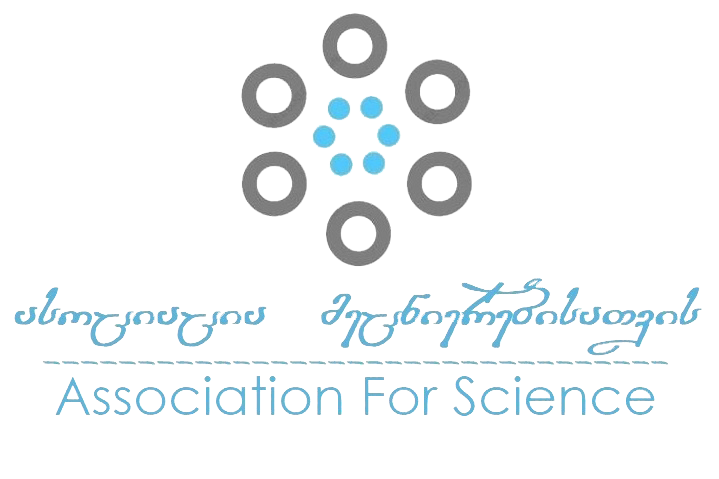Reflecting the Areopagitic concept of the evil and the good in Romanticism and in the Previous Literature
DOI:
https://doi.org/10.52340/sou.2023.19.11Keywords:
good, evil, areopagitics, concept, romanticism, poetry, Georgian, literature, ancient, spirituality, good evilAbstract
The represented work refers to how the areopagetic concept of the good and the evil is reflected in the Georgian romantic poetry and the Old Georgian literature. This theme is discussed at the background of the poetic heritage of the Georgian poets Al. Chavchavadze, Gr. Orbeliani and N. Baratashvili. The aim of the research work is to analyze the data concerning the reflections and receptions of the interrelations of such notions as the evil and the good evidenced in the Georgian literature of the mentioned period and even earlier. What is the essence of the evil and the good as seen from the view of the Georgian romanticism poetry and what the traditional understanding of the problem is? It is necessary to determine the interrelations between the good and the evil in general, in order to understand deeply the poetic ideas of the mentioned period of Georgian literature. The influence of the areopagitic ideas on the Georgian poetic thinking is obvious beginning from the time when the Georgian scholar Ephrem Mtsire translated the Areopagite philosophical works into Georgian. The romantic understanding of the ideas of good and evil needs to be thoroughly studied as the poets of the romanticism in the Georgian poetry created the ideal world in their imagination and they were trying to make those ideas and understanding rooted in the real life. One of the most important rings in the chain of the romantic ideas about the idealistic universe is the divine good, the lack of which produces the evil. The results of our research allowed us to conclude the following: 1.The understanding of the ideas of the good and the evil in the Georgian poetry is usually based on the areopagitic concepts. It is possible the poets of the romanticism were not familiar with the areopagitic philosophy but those ideas were traditional for them rooted in the Georgian literature by the epoch of renaissance. 2. For the poets of romanticism the good meant the freedom, freedom of the State as well as the personal freedom and restraining the freedom meant declining from thee good. Lack of good gave birth to the evil which became the basis for all kinds of disruptions – disruption of the State and of the person. 3. In the concept of romanticism the evil is very long-lasted phenomenon; as for the good it is very short-time, it is characterized as “being only for a moment”. Such perceptions of the phenomena of the good and the evil are conditioned by spiritual dissatisfaction and disruption among the whole nation. Several researching methods are used in the analysis given in our work; these methods are: analytical, synthesis, abstraction, observation. Complex using of the mentioned methods enables us to analyze our problematic thoroughly. In order to make our researches of the romanticism and areopagitic insertions and reminiscences more clear, we used the historical- comparative methods which enabled us to provide deep analytical research of the historical roots of the Georgian romanticism poetry.
References
აღმაშენებელი(1989): დავით აღმაშენებელი, გალობანი სინანულისანი, თბილისი;
ბარათაშვილი (1975): ნ. ბარათაშვილი, ქართული პოეზია (შემდგენელი - ცაიშვილი ს.), ტ. VI, გამომცემლობა „ნაკადული“, თბილისი;
გურამიშვილი (1955): დ. გურამიშვილი, დავითიანი, საქართველოს სსრ მეცნიერებათა აკადემია, რუსთაველის სახელობის ქართული ლიტერატურის ისტორიის ინსტიტუტი, თბილისი;
თვარაძე (1985): რ. თვარაძე, თხუთმეტსაუკუნოვანი მთლიანობა, გამომცემლობა „განათლება“, თბილისი;
მახარაძე (2011): მ. მახარაძე, არეოპაგიტიკა, ფილოსოფიური მსოფლმხედველობა, ფილოსოფიური და თეოლოგიური წყაროები, გავლენა, გამომცემლობა „ინტელექტი“, თბილისი;
კაკაბაძე (1983): მ. კაკაბაძე, ქართული რომანტიზმის ეროვნული საფუძვლები, გამომცემლობა „მეცნიერება“, თბილისი;
ლოსევი (1975): ა. ლოსევი, აღმოსავლური რენესანსი, მთარგმნელები: მიხეილ მახარაძე, პაატა ჩხეიძე, ბათუმი;
ნუცუბიძე (1976): შ. ნუცუბიძე, რუსთაველის მსოფლმხედველობა, შრომები, ტ. IV, გამომცემლობა „მეცნიერება“, თბილისი;
ორბელიანი (1975): გრ. ორბელიანი, ქართული პოეზია (შემდგენელი - ცაიშვილი ს.], ტ. VI, გამომცემლობა „ნაკადული“, თბილისი;
რუსთაველი (2014): შოთა რუსთაველი, ვეფხისტყაოსანი, გამომცემლობა „საბჭოთა საქართველო“, თბილისი;
ფსევდო-ლონგინე (2014): ფსევდო-ლონგინე, ამაღლებულისათვის, „ბაკურ სულაკაურის გამომცემლობა“, თბილისი;
ჭავჭავაძე (1975): ალ. ჭავჭავაძე, ქართული პოეზია (შემდგენელი - ცაიშვილი ს.), ტ. VI, გამომცემლობა „ნაკადული“, თბილისი;
ჯალიაშვილი (2016): მ. ჯალიაშვილი, ნიკოლოზ ბარათაშვილი და ქართული ლიტერატურული ტრადიცია, ჟურნალი „ძიებანი“, XXVII, შოთა რუსთაველის სახელობის ქართული ლიტერატურის ინსტიტუტი, თბილისი;
Хидашели (1962): Ш. Хидашели, Основные мировоззренические направления в феодальной Грузин, Тбилиси.



